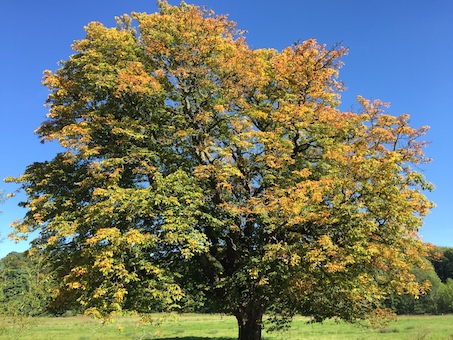Maths is the last thing you would expect to find in the middle of a popular TV programme. But during an episode of a BBC show there it was hiding behind the jokes.
Would I lie To You is a comedy panel show that was first broadcast in 2007. It consists of two teams of three people that are captained by well known comedians. A team gains a point for correctly guessing whether a statement from the opposing team is true or not, but if they guess incorrectly the opposing team gets the point. In one particular episode Lee Mack, one of the captains, read out a statement about an object that he owned, his lucky dice: ”This is my lucky dice. I can always roll a six with it in three goes.” During the next five minutes he joked his way through three attempts to roll a 6. Behind the humour there was some maths at work which show some misconceptions about chance and how probability could answer a deeper question.
There are lots of events in life that can’t be predicted with total certainty. We often use a range of words such as certain, likely, evens and impossible, to describe the likelihood of an event happening. However, maths, in particular Probability, can be used to calculate the chance of an event happening but care must be take in interpreting its results.
Dice are used in many games, including gambling, as a way to generate a random number. It is a square object with numbers 1 to 6 on each of its six sides. After it has been rolled then the number shown on the top is taken as the number that is used to proceed to the next step in the game. Probability assumes a perfect world and in the case of a dice then there are only six possibilities. To calculate the probability of a particular number being shown there is one chance in six, in other words the dice will show one of its six sides. For example the probability that a number 6 is shown is 1 / 6 or 17% percent. But what does that mean? If we had asked Lee to roll the dice 10,000 times and then count the number of times that 6 came up the answer that he get would be approximately 1600 times or 17%. The more times he rolled the dice then the closer he would get to 17%. Probability can be used to calculate the opposite question which is: “what is the probability that a 6 is not rolled?” We know that there are five other sides that don’t show a 6 therefore the answer is 5 / 6 or 83%. Notice that both cases - rolling a 6 ( 17% ) and not rolling a 6 ( 83% ) - add up to 100%. When Lee rolled the dice for the first time there was a greater chance that it would not be a 6. He got a 5.
On the next roll the dice showed a 3. As Lee took the third and final roll of the dice it was apparent that the studio was getting tense - would it actually be a 6? After all we already had two numbers that were not 6 therefore the next roll must have a greater chance of producing a 6. But each new roll of the dice is independent of the previous one. A dice does not have a memory of the previous results and therefore is not affected by its history. The chances of getting a 6 on the third and final roll of the dice is still 1 / 6 or 17%. The expectation that ones luck is going to change because of previous results is called The Gambler’s Fallacy and has been, and remains, the ruin of many people. On the final roll the number 2 came up.
Behind the ‘lucky dice’ part of the show there is a much more interesting question and that is: “how many times do I need to roll the dice so that, on average, it would be a 6?”. The phrase ‘on average’ is an important part of the question. We come across averages in our daily life, for example the average spend of a cyclist at a tea shop is around £8 per visit. Some cyclists spend less maybe just buying a tea and cake, some spend more say tea, cake, bacon filled roll and maybe another piece of cake! However, if you take the total spend of all of the cyclists in say a day and divide by the number of cyclists it would give the average spend per cyclist. Averages are calculated for a wide range of subjects ranging from family diet to the spend on weekly shopping and is mainly used to look for trends. Therefore to calculate the average - yes you guessed it - we would ask Lee to roll the dice and keep count but this time count how many rolls it took to get a 6. He may roll a 6 on the first roll, he may roll a 6 after the tenth roll, and so on. Once he had carried it out for 10,000 attempts to get a 6 he would add up the total number of rolls to get a 6 and divide it by 10,000 to calculate the average. The answer is that it take six rolls, on average, to get a 6 ( see the video which describes three different ways to calculate the average number of rolls to get a 6 including the one discussed above ).
Lee’s lucky dice shows how maths can be used to clarify ideas such as chance as well as ask some interesting questions. Picking up ideas from popular TV programmes, and social media, is a good way to introduce maths concepts to a wider audience. Maybe the mathematics community could adopt this approach?





